The Idea of Tiny Bookshop
You park your van near a lighthouse. The air is rich with the scent of sea salt and fresh coffee drifting from a nearby kiosk. An elderly woman approaches and asks if you have “something light to read before taking the train”. You smile, recommend Around the World in Eighty Days, and watch her eyes light up. The sale brings in a few dollars, but the satisfaction is worth far more than any progress bar could measure.
That is how Tiny Bookshop draws you in. Not with thrilling combat or complex management systems, but with small, genuine moments. It turns the act of selling books into an almost therapeutic experience, blending charming visuals, memorable characters, and the joy of watching someone find the right story at exactly the right time.
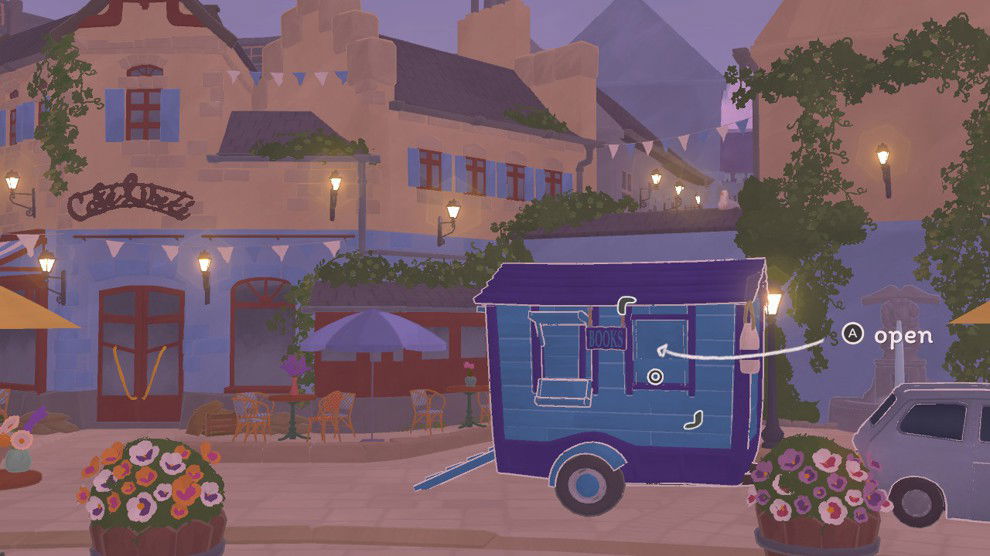
This is not a game meant for all-night marathons. It is one you open after a long, tiring day, take a deep breath, and spend twenty minutes helping fictional customers who truly care about your books.
The game is set in Bookstonbury, a coastal town straight out of a vintage postcard. Through the changing seasons, you visit ten unique locations with your bookshop on wheels, meeting customers, learning their tastes, and gradually becoming part of the community. All of this is wrapped in a soundtrack that could easily be playing in a cozy café on a rainy afternoon.
Technical Sheet
Release date: August 7, 2025
Developer: neoludic games
Publisher: Skystone Games, 2P Games
Platforms: PC, Nintendo Switch
Official trailer:
Running the Little Big Bookshop
Daily Routine: The Ritual of Opening the Shop
Your day begins with the Bookstonbury Review, the local newspaper that not only shares news about town events but also serves as a catalog for ordering new boxes of used books and a few decorations. The management side plays like a calm, competition-free “deckbuilder,” where the goal is to match your stock with customer demand to maximize sales and satisfaction.
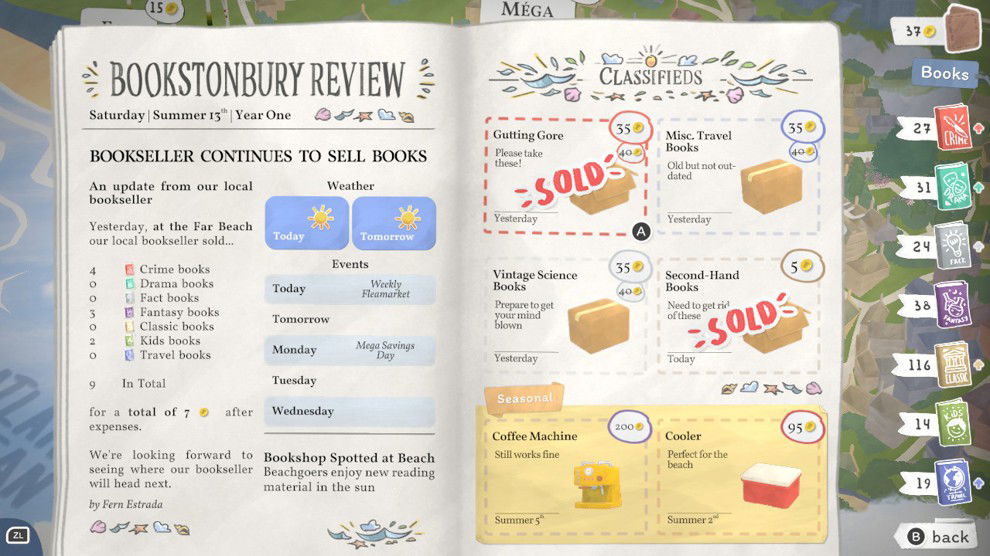
Customer preferences change depending on the neighborhood. Near the lighthouse, maritime tales, travel guides, and adventure novels find loyal readers. In the local market, dramas and romances are the favorites.
Decoration
The way you decorate your van directly affects sales. For example:
- Skulls and dark décor increase the appeal of Crime books.
- Academic items help boost sales of Classics.
Customization is not purely visual. Choosing between a flower vase or a stack of old books can shift customer trends for the day and influence your profits.
Also, keep in mind there are special events where you can pick up unique decorations.
The Bookstonbury Community
Each location has characters who, over time, stop being just customers and start becoming acquaintances or friends. You will see evolving storylines, conversations that reveal vulnerabilities, and small personal triumphs.
- Tilde, a former bookseller, blends nostalgia and wisdom, becoming almost a mentor.
- Klaus, a historian and amateur musician, lives between his passion for knowledge and his dream of success with his band.
- Harper, a curious child, faces fears with your help.
Their stories weave into the main progression. You might support the local theater, help a band play at a festival, or simply be a friendly ear for unexpected confessions.
It is also worth paying attention when customers ask for help. If you recommend a book they are looking for, you get a brief sales boost on all books. Use that moment wisely.
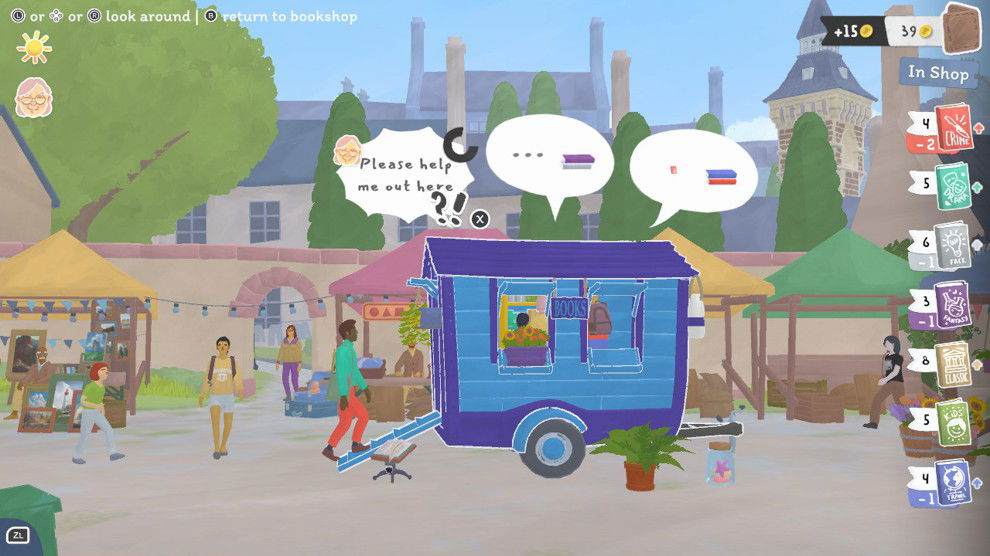
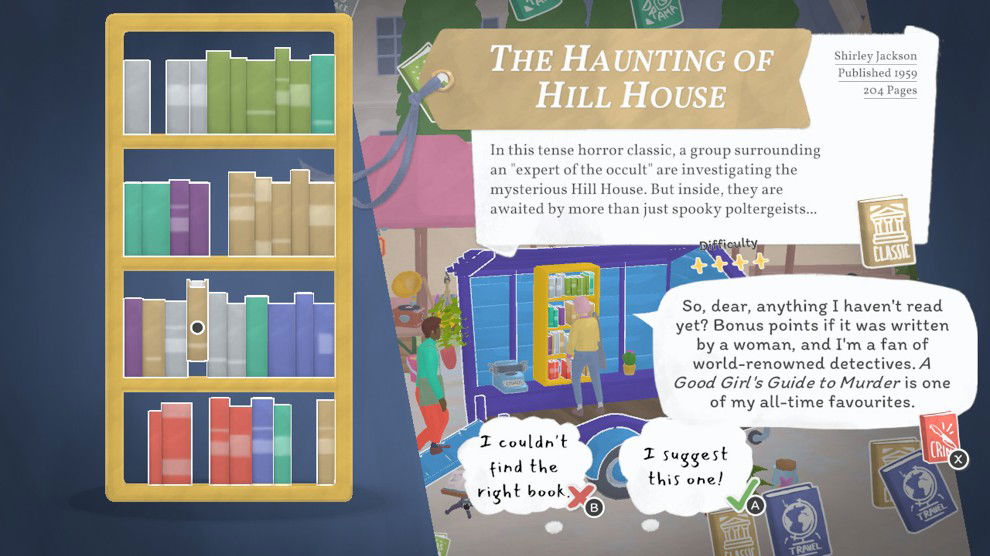
Game Atmosphere
Visually, Tiny Bookshop leans into stylized minimalism. Characters with simple shapes recall Untitled Goose Game, while the main cast has more detailed portraits that give them personality. The environments are especially striking: beaches at sunset, streets carpeted with autumn leaves, and bright markets in spring. They feel like paintings of comforting scenes.
The soundtrack is gentle, enhancing the meditative tone. There is no rush and no flashing alerts. At its heart, this is a game that invites you to slow down and focus on the moment.
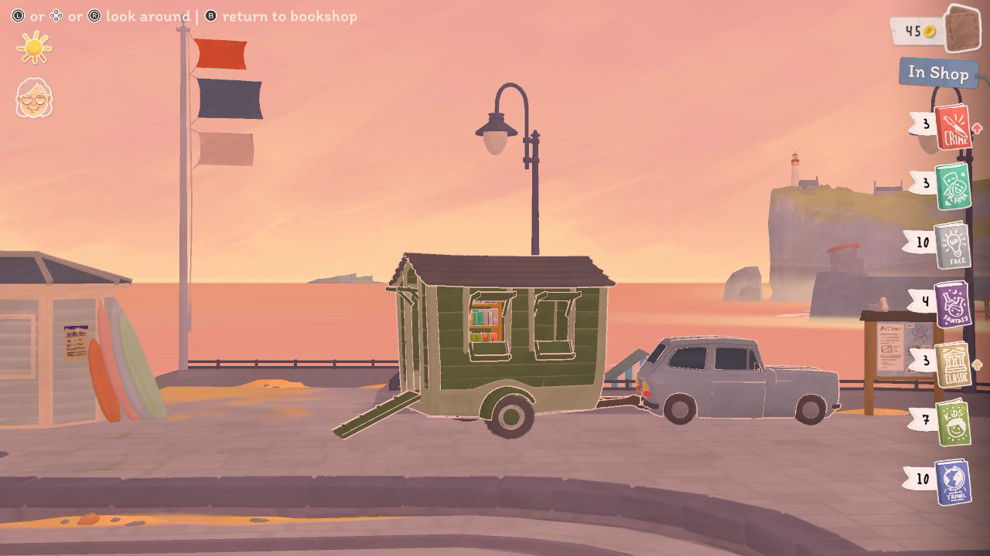
The Routine Can Sometimes Be Tiring
While the buy > sell > decorate and restock > repeat loop can feel relaxing, it can also grow repetitive. It lacks deeper systems like price negotiation or advanced inventory planning.
Each book sells for around $3, but fixed expenses such as restocking and parking eat into your profits. The busiest locations are expensive, and discounts are rare. The result is slow, sometimes dragging progress that demands patience from players seeking faster advancement.
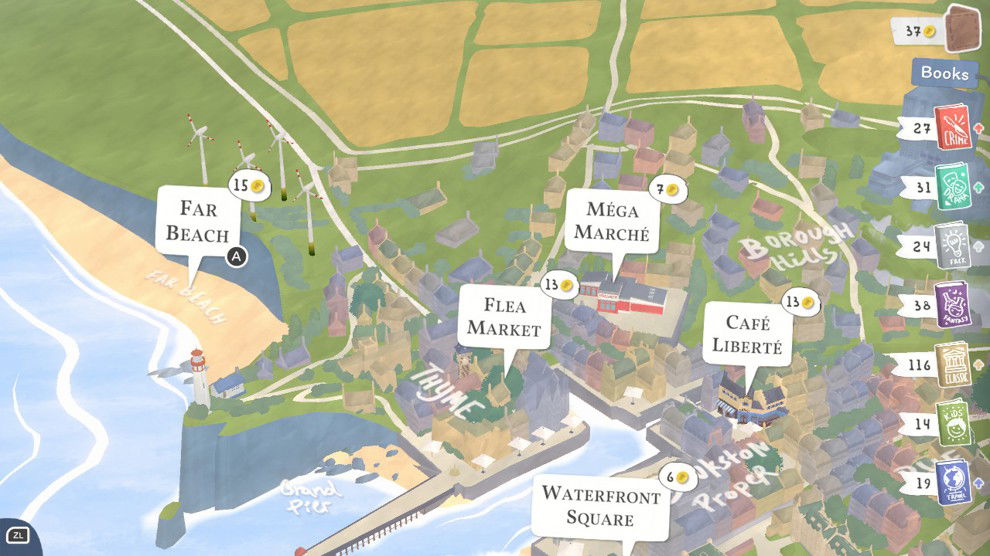
The game keeps a deliberately slow pace. There is no option to speed up time or skip cutscenes, and watching customers interact with the shop is unavoidable. Hearing the same line from the same customer five times across different days can start to wear thin.
Personal Analysis
For me, the most magical thing about Tiny Bookshop is not just the coastal setting or the warm dialogue, but the fact that the books featured in the game are real. This creates an instant bridge between the virtual and physical worlds. Seeing a title I have read, or always wanted to read, on the digital shelf feels like bumping into an old friend while strolling through town.
That familiarity sparks memories. I remember where I was when I read that novel, the conversations it started, or how a single passage changed how I saw something. It is a rare connection in games, one that can make you pause and reach for a book on your real shelf or finally buy that title you have been curious about.
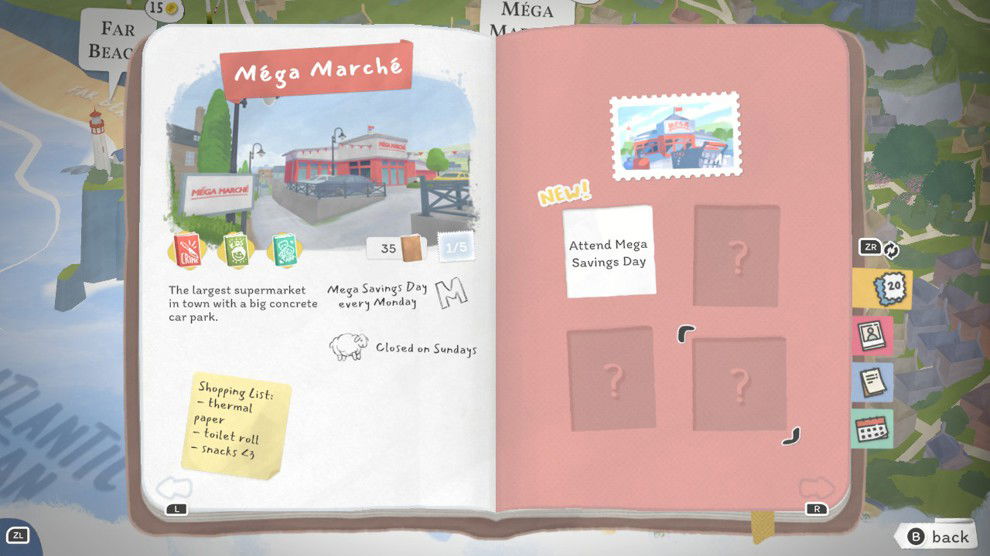
To me, Tiny Bookshop is like a love letter to books and small communities. It does not chase radical innovation, but offers a haven for those who want to slow down, enjoy good stories, and recommend books to people who care.
Yes, it is slow. Yes, it repeats itself. But that steady rhythm might be its greatest strength. In a fast-paced world, this game reminds us that the best stories are revealed page by page.
Pros
- Cozy, relaxing atmosphere that is perfect for unwinding after a busy day.
- Endearing characters and story events that build a sense of community.
- Use of real books, creating a strong connection for literature lovers.
- An engaging sales mechanic that focuses on understanding customers.
- Customization that affects shop performance, not just appearance.
- Varied locations and charming visuals with seasonal changes.
Cons
- A repetitive and limited gameplay loop.
- Slow pace with no option to speed up.
- Tight in-game economy with low profits and high costs.
Conclusion: Is Tiny Bookshop Worth Playing?
Yes, but with a condition. You need to know that Tiny Bookshop is not here to wow you with big numbers, fast pacing, or complex challenges. It is here to give you a safe, calm space where the biggest victories are selling the perfect book, unlocking a new conversation with Klaus, or finally saving enough for that decoration that changes the feel of your shop.
For book lovers, fans of short narratives, and players who appreciate slow-paced games, it is almost irresistible. For anyone wanting a small digital refuge, a place to spend a few minutes each day, it is worth the price.
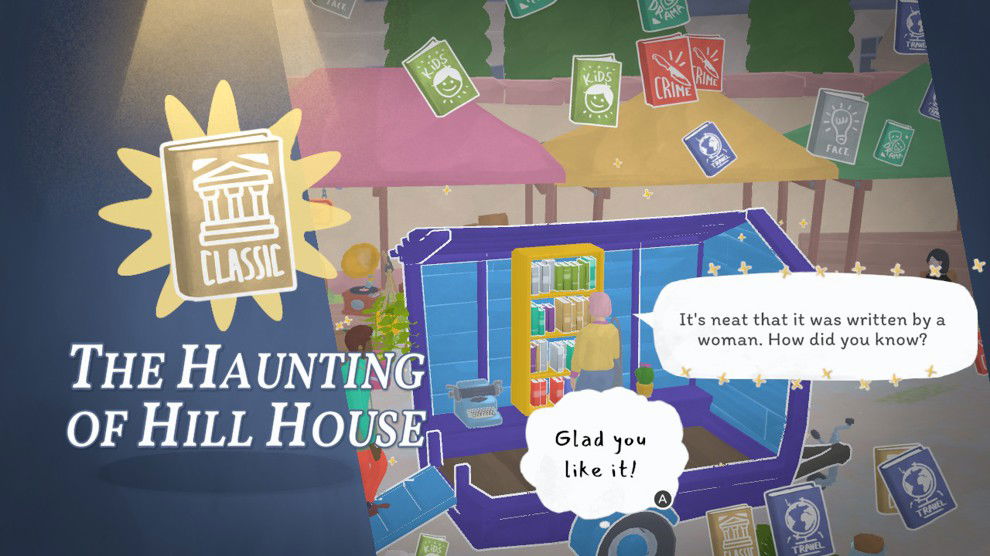
If you are looking for quick progression, surprising mechanics, or intense challenges, you might find the pace too slow.
In short, Tiny Bookshop will not appeal to everyone, but for the right audience, it could be one of those games that stays with you.











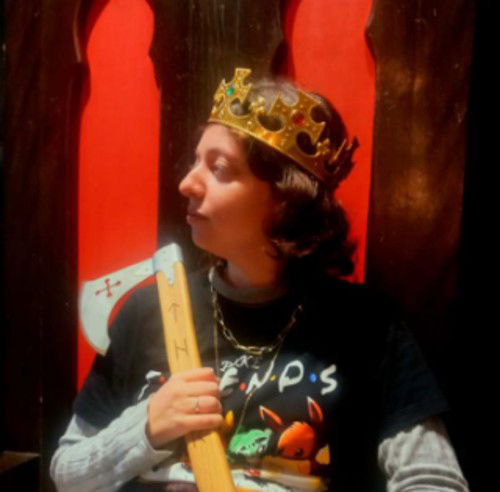

— 评论 0
, 反应 1
成为第一个发表评论的人